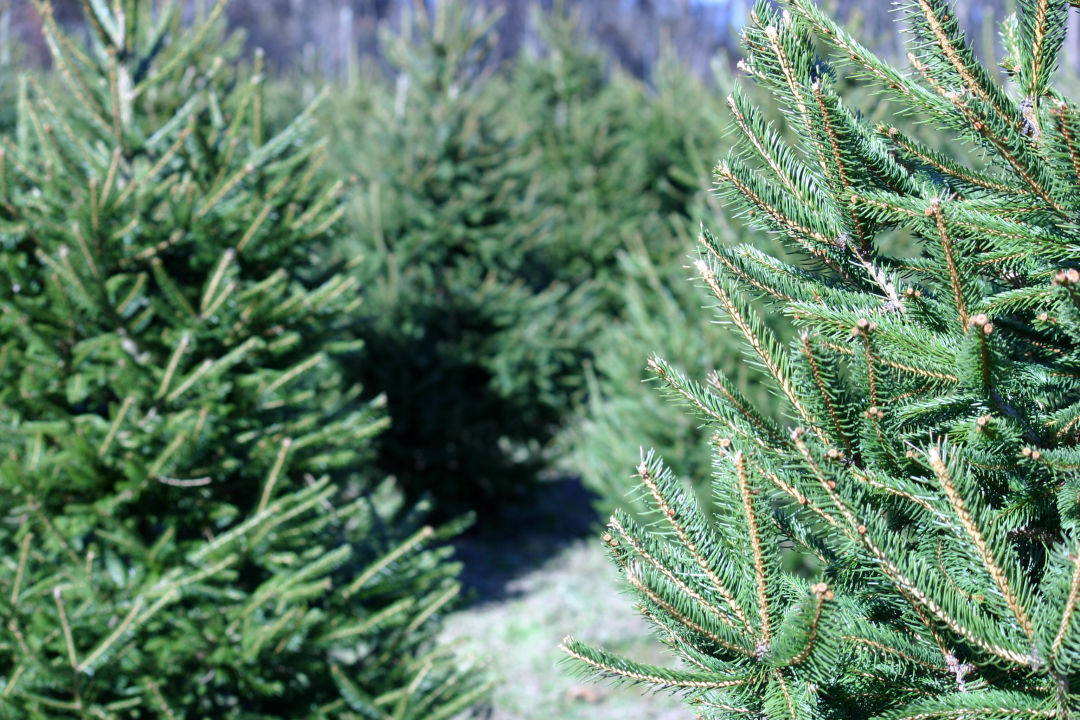Christmas Tree Disposal Can Mean More Than a Trip to the Curb

Christmas trees can help plants growing in our acidic soil thrive.
While most Americans choose artificial Christmas trees, the natural-tree market is making a comeback, meaning that more trees will be kicked to the curb after the holiday season.
Of the more than 94 million U.S. households displaying a Christmas tree this year, roughly a third of those trees will be real. Sarasota and Manatee counties' trash-collection services will pick up trees disposed of as yard waste, but there are alternatives for those looking to be greener.
City of Sarasota Public Works general manager Todd Kucharski says that deciding what kind of tree works best for your household is the place to start, but knowing what to do after that decision is what really matters.
If cared for properly and stored carefully, artificial trees can last 10 to 20 years, but they typically can’t be recycled. They must be used for at least 10 years to have the same carbon-utilization impact as purchasing a real tree every year. When it's time to throw them out, Kucharski says they can be disassembled and placed in the trash for regular pickup.
Alternatively, natural trees can be repurposed and used for composting, mulch or to nourish soil.
“Christmas trees have more of an acidic aspect to them,” says Kucharski. “Generally in our neck of the woods, our soils are more alkaline-to-neutral and some plant varieties like to have a little more acidic soil.”
If not being recycled, trees in Sarasota can be placed on the curb before 7 a.m. on the regularly scheduled yard-waste service day. Manatee County collects trees from Dec. 25 to Jan. 6, and they must be cut into sections no taller than four feet. They should be placed on the curb by 6 a.m. on service days.
Experts warn against burning discarded trees. They can flare into a fast-burning inferno, whether outdoors or in a fireplace.
Price for real trees this season average $80-$100, about 10 percent higher than 2022, according to the American Christmas Tree Association.

Natural Christmas trees, like the ones sold at Alpine Christmas Trees in Lakewood Ranch, can be recycled in various ways after the holiday season.
Image: Courtesy Photo
Local tree retailer Eduardo Hernandez says his Alpine Christmas Trees tries to limit the potential for waste up front, carefully calculating how many trees they may need each season to prevent unnecessary shipments.
“I’d say there’s lots of benefits when it comes to real trees. We do the shipping,” he says. “But most of those pieces [for artificial trees] come from other parts of the world, so there’s even more shipping.”
Alpine Christmas Trees only deals in Fraser firs, a durable, long-lasting tree often shipped from western North Carolina. Hernandez notes that the trees grow in areas with poor soil conditions, so the natural tree market gives purpose to land likely to go unused otherwise.
Natural trees also help to offset carbon emissions and provide habitats for animals while they’re being grown. The 30 million trees harvested each season are replaced by one to three more new trees each year, adding to the 350 million currently growing, according to the National Christmas Tree Association.
Alpine Christmas Trees is located at 11315 Palmbrush Trail in Lakewood Ranch. Hernandez says he has sold out the last few years, but any trees left over will be donated to St. Mary Magdalene Church.
Sarah Owens is a reporter for the Community News Collaborative. Connect with her at [email protected].



